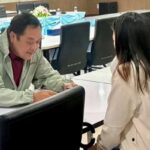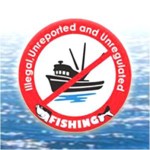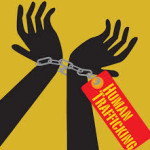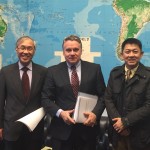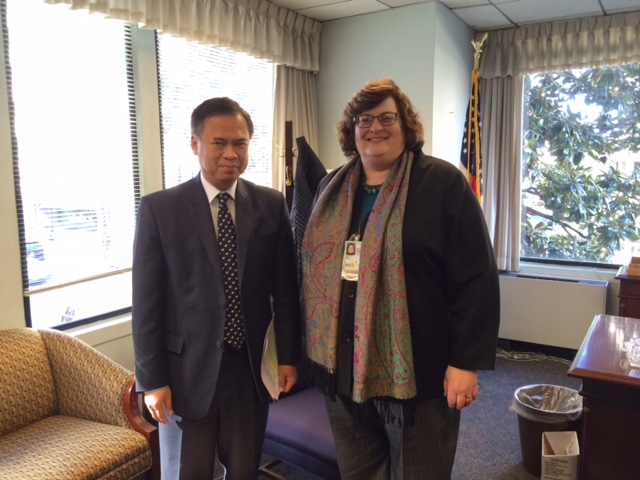
Combating trafficking in persons continues to be a top priority for Thailand. The present Government and the Prime Minister himself have made it very clear that this is a national agenda and have declared zero tolerance to human trafficking and its nurturing conditions, including, in particular, corruption and complicity of state officials.
As part of the ongoing dialogue and engagement with the U.S. Department of State on this issue, Ambassador Vijavat Isarabhakdi met the Acting Director of the Office to Monitor and Combat Trafficking in Persons, Kari Johnstone, on 4 February 2015 to brief the latter on important policies, measures and tangible progress made by the Thai Government over the past year, and to underscore the country’s unwavering commitment to fight against the scourge of human trafficking. The Ambassador also formally presented to the TIP Office Thailand’s Trafficking in Persons 2014 Country Report.
The high-level commitment reiterated by the Prime Minister, including in his personally chairing inter-agency meetings, has translated into policy directives and actions based on the 5P’s strategy covering Policy and Mechanisms, Prosecution, Protection, Prevention and Partnership. Key achievements in Thailand’s efforts in 2014 include:
- Further strengthening of coordination and integration of anti-human trafficking efforts among all agencies concerned at both policy and implementation levels
The Policy Committee on Human Trafficking and Illegal Fishing has been established, chaired by the Prime Minister, with 5 subcommittees, to oversee policies and efforts to address the complex issue of human trafficking in all dimensions, in a more comprehensive manner, and for the long term. Meanwhile, important pieces of legislation have been or are in the process of being amended, such as the Anti-Human Trafficking Law of 2008, the amendments to which are pending approval by the National Legislative Assembly, to provide better protection to witnesses and officials working on human trafficking cases, to mandate allocation of half of the assets seized from traffickers to compensate victims, while increasing penalties in very serious cases of human trafficking offences.
- Integration of efforts against labor trafficking and related challenges in the sea fishery sector
Key regulations have been amended, such as the Ministry of Labor’s Regulation to Protect Labor in the Sea Fishing Industry, which provides workers with better protection and work conditions, including by raising the minimum age requirement to 18 years old, requiring written employment contracts for workers, and setting a mandatory rest period of 10 hours per day and annual leave of 30 days. Registration of workers, port-in and port-out control and installation of Vessel Monitoring Systems on fishing vessels have also been enforced to help protect workers and thus reduce their risks of becoming victims of labor exploitation, while also monitoring human trafficking.
- Fighting corruption, including by empowering anti-corruption agencies with a budget increase of over 9 million USD to the Office of the Anti-Corruption Commission and an addition of more than 700 new positions.
- More than doubling the budget allocated to anti-human trafficking in 2015 to about 15.42 million USD
- Implementing long-term solutions by addressing human trafficking at its root causes
The Thai Government has implemented key measures such as establishing Special Economic Zones along the border areas, providing development assistance and doing social cooperation projects and activities with a view to supporting economic and social development, expanding job opportunities and bettering local livelihood, thereby addressing poverty and development gaps within Thailand and between Thailand and its neighboring countries.
- Putting in place a human trafficking database so that agencies can better track human trafficking cases as well as assistance to victims.
- Stepping up law enforcement and prosecution efforts with focus given to apprehending the main perpetrators and cracking down on trafficking syndicates
According to the statistics gathered thus far, 280 human trafficking cases were investigated, 155 offenders in 115 cases were prosecuted and 104 offenders convicted in 2014. Measures have also been taken to improve law enforcement such as applying more stringent consideration of temporary release on bail. In addition, 134 legal actions were taken against 156 illegal brokers following complaints, while another 107 illegal brokers are facing action based on 88 proactive investigations by the Ministry of Labor.
- Addressing officials’ complicity
In 2014, 19 officials and public employees have been penalized for human trafficking negligence or involvement in the second degree.
- Improving the victim identification process conducted by a multi-disciplinary team consisting of law enforcement officers, social workers, psychological experts, and interpreters, if needed. NGOs and international organizations are also brought in to take part in identifying victims of trafficking.
In 2014, 595 victims of human trafficking were identified, with about half of them placed in shelters run by the Ministry of Social Development and Human Security (MSDHS). Job opportunity services are provided to victims in the shelters, and coordination has been made to expedite the issuance of temporary permits.
- Making hotline services available 24/7, particularly the Dial “1300” Hotline run by the One Stop Crisis Center operated by MSDHS, with interpreters provided in five languages
- Implement prevention measures to reduce risk factors and vulnerability of both Thais and foreign nationals in Thailand in becoming victims of human trafficking
In addition to on-going awareness raising campaigns, the Thai Government has been promoting employment of migrant workers through G-to-G arrangement (MOU), strengthening control of domestic employment services for migrant workers, and registering and legalizing illegal migrants. Other prevention measures include conducting preventive inspections at high-risk locations and fishing vessels; blacklisting, denying entry and revoking permits to stay of foreigners or tourists with criminal records on sexual exploitation; and developing an integrated database system of vessels and vessel inspection records.
- Promoting partnerships and cooperation with stakeholders in Thailand and in other countries
Recognizing that government alone cannot effectively tackle human trafficking and its related problems and neither can one country, the Thai Government works with the private sector, civil society organizations, and academic institutions. It also collaborates with international partners including foreign governments, such as the U.S., European countries and Australia, and international organizations like ILO and IOM on various projects and activities, while also engaging with international NGOs. Thailand has also been active in promoting cooperation against trafficking in persons regionally and globally, including in relevant frameworks within ASEAN, the Bali Process and the United Nations.
While significant progress was made in 2014, Thailand also recognizes that challenges remain, and that more needs to be done against human trafficking. The country is firmly committed to doing more.
______________________

